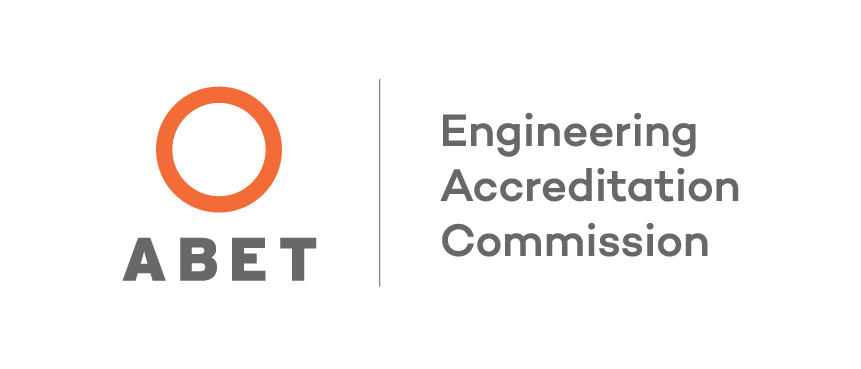Electrical Engineering
BS, BS/MS
Major in electrical engineering
Electrical engineers design and develop electrical and electronic components and systems for power, communications, and control; integrated circuits; and computers.
Electrical engineering is the largest field within the engineering profession, and it continues to grow and evolve. Electrical engineers are working in such diverse fields as acoustics, aerospace, automotive, communications, consumer electronics, energy resources, the environment, medical and biomedical fields, power, signal processing, space, testing, and underwater systems.
Our program prepares you for this evolving field by providing a strong background in science, mathematics, and engineering. You will be prepared for positions in industry and with government agencies and to continue your studies at the graduate level.
For the BS in electrical engineering, you'll complete 75 credits in general engineering and electrical and computer engineering courses with 125 credits overall. Your electrical engineering courses will include:
- analog circuits
- computer programing
- digital and embedded system design
- electromagnetics
- electronics
- signals and systems
You'll also choose from technical electives such as acoustics, computer networks, integrated circuits, wireless communications, and others. During your final year, you will complete a senior design project that provides real-world experience defined by industry needs.
Dual bachelor's degrees in electrical & computer engineering: Prepare to meet a broad range of challenges in these ever-changing high-tech fields.
A minor in electrical engineering provides an opportunity to specialize in a specific area such as electromagnetic theory, communications theory, electronics, signal processing, or very large-scale integration.
For the minor, you'll complete at least 19 credits.
Median starting salary for electrical engineering majors, class of 2022: $0,0
NACE AY 2022 Data Collection of Undergraduate Alumni
- Capstone projects: most senior engineering students work in small teams on real-world, industry-specific challenges that demand analysis, proposals, prototypes, and solutions.
- Community: join organizations such as the Institute of Electrical and Electronics Engineers (IEEE), Association for Computing Machinery, Eta Kapa Nu (the Electrical and Computer Engineers National Honor Society), the Society of Women Engineers, the National Society of Black Engineers, and Engineers Without Borders.
- Experience: participate in internships and co-op to gain valuable experience with regional industries, often while also earning money for college.
- New initiatives: collaborate, create, and explore at the Center for Scientific Computing and Visualization Research.
International (F-1) students who receive science, technology, engineering, and mathematics (STEM) degrees may be eligible to apply for a 24-month extension of their post-completion optional practical training (OPT). To learn about the eligibility criteria and detailed steps to apply, please review the International Student & Scholar Center (ISSC) OPT page and USCIS resources. F-1 students must consult with the ISSC to apply for STEM OPT.
UMass Dartmouth offers a great transfer experience for students who:
- have graduated from an accredited community college, or
- have earned college credits from an accredited college or university
- Accelerated BS/MS Program: This program enables qualified BS degree students in electrical engineering to complete both the BS and the MS degrees in 5 years.
- MS in Electrical Engineering: Expand your career options with a master's degree in electrical engineering.
- PhD in Electrical Engineering: Our doctoral program offers options in electrical engineering and computer engineering.
- Graduate certificates: The department also offers 6 graduate certificate programs for working professionals.
/prod01/production-cdn-pxl/media/umassdartmouth/programs/coe/230424-UMD-ENGINEERING-DAY1-067-1600X400.jpg 512w)

/prod01/production-cdn-pxl/media/umassdartmouth/college-of-engineering/news/Antz-Lee-Francois.jpg?text=fallback512)
/prod01/production-cdn-pxl/media/umassdartmouth/college-of-engineering/ece-dept/faculty-students/Brown,David_002.jpg?text=fallback320)
/prod01/production-cdn-pxl/media/umassdartmouth/profiles/engineering/electrical-amp-computer/220413-UMD-PORTRAIT-FOUR-04.jpg?text=fallback320)
/prod01/production-cdn-pxl/media/umassdartmouth/profiles/engineering/electrical-amp-computer/Ana-Doblas2023.jpg?text=fallback320)
/prod01/production-cdn-pxl/media/umassdartmouth/college-of-engineering/ece-dept/faculty-students/Gendron,Paul_0004.jpg?text=fallback320)
/prod01/production-cdn-pxl/media/umassdartmouth/profiles/engineering/Mohammad-Karim2.jpg?text=fallback320)
/prod01/production-cdn-pxl/media/umassdartmouth/profiles/engineering/electrical-amp-computer/DKasilingam_141024_0001-500h.jpg?text=fallback320)
/prod01/production-cdn-pxl/media/umassdartmouth/college-of-engineering/ece-dept/faculty-students/yli.jpg?text=fallback320)
/prod01/production-cdn-pxl/media/umassdartmouth/profiles/engineering/electrical-amp-computer/David-Rancour.jpg?text=fallback320)
/prod01/production-cdn-pxl/media/umassdartmouth/programs/featurebox-honors.jpg?text=fallback512)
/prod01/production-cdn-pxl/media/umassdartmouth/programs/featurebox-study-abroad.jpg?text=fallback512)
/prod01/production-cdn-pxl/media/umassdartmouth/programs/featurebox-OUR.jpg?text=fallback512)
/prod01/production-cdn-pxl/media/umassdartmouth/programs/featurebox-university-studies.jpg?text=fallback512)